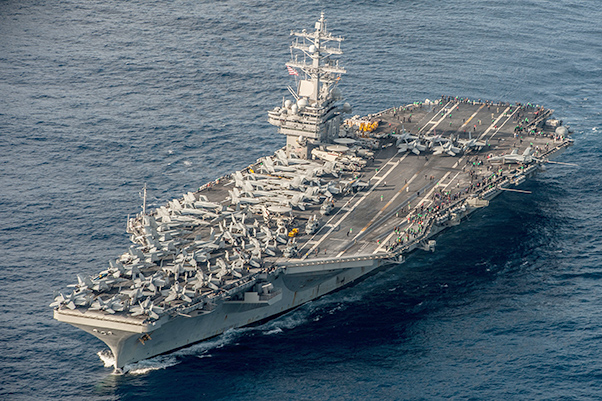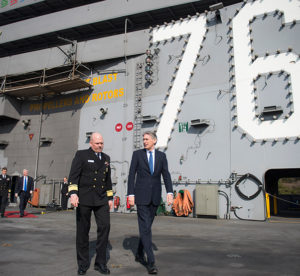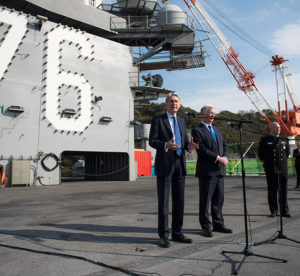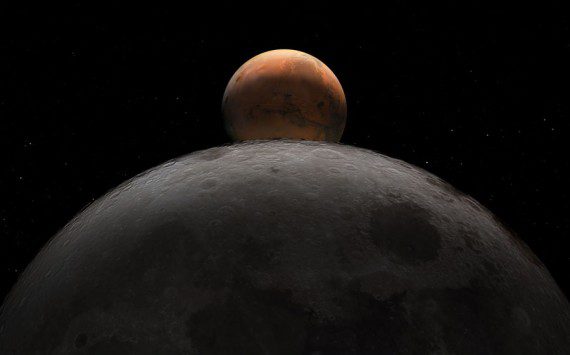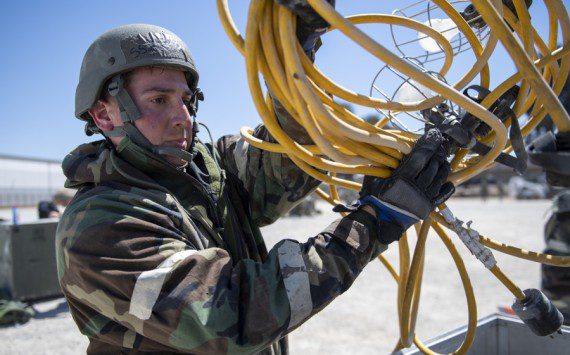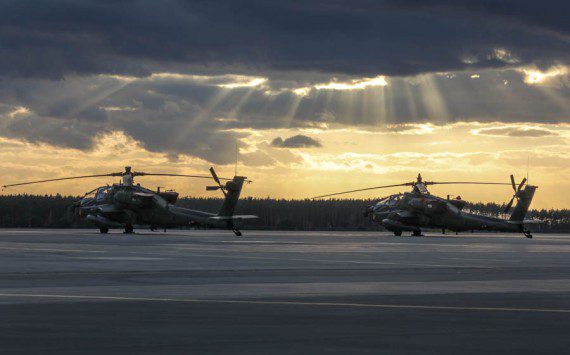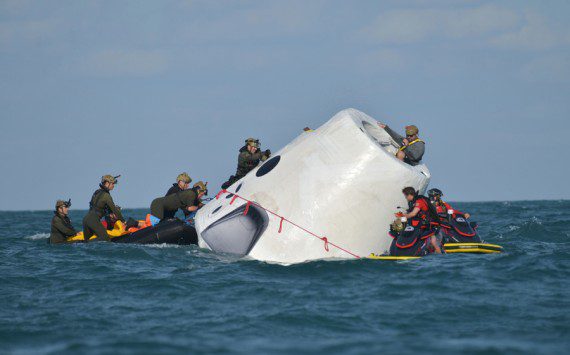The aircraft carrier USS Ronald Reagan (CVN 76) is underway during Annual Exercise (AE) 16. The Ronald Reagan Carrier Strike Group is participating in Annual Exercise 16 to increase interoperability between Japanese and American forces through training in air and sea operations.
The U.S. Navy’s only forward-deployed aircraft carrier, USS Ronald Reagan (CVN 76), hosted nine officials from the United Kingdom Jan. 8.
Rear Adm. John Alexander, commander, Battle Force 7th Fleet, and Capt. Brett Crozier, Ronald Reagan’s executive officer, welcomed aboard the Right Honourable (Rt. Hon.) Philip Hammond, Member of Parliament (MP), Secretary of Foreign and Commonwealth Affairs, the Rt. Hon. Michael Fallon MP, Secretary of State for Defence, and other delegates, and held a press conference on the ship’s flight deck.
“I am very pleased to have our allies from the United Kingdom aboard the U.S. Navy’s forward-deployed aircraft carrier USS Ronald Reagan,” said Alexander. “It’s my great honor to introduce the U.K. Foreign Secretary Minister Hammond and the U.K. Defence Secretary, Mr. Fallon.”
British Ambassador to Japan Tim Hitchens, Director, Asia-Pacific Stephen Lillie, and Director, General Security, Ministry of Defence, United Kingdom Peter Watkins, were also among those who visited Ronald Reagan.
“We are delighted to be on board USS Ronald Reagan this morning,” said Hammond. “We’ve been on the Izumo [Japan Maritime Self-Defense Force helicopter destroyer JS Izumo (DDH 183)] seeing how the Japanese and American forces work together to ensure our security and the interests of the international community in this region. It’s very inspiring.”
Rear Adm. John Alexander, left, commander, Battle Force 7th Fleet, and the Rt Honorable Philip Hammond MP, Secretary of State for Foreign and Commonwealth Affairs, walk toward a media press conference on the flight deck of the U.S. Navy’s only forward-deployed aircraft carrier USS Ronald Reagan (CVN 76). The United Kingdom’s Secretary of State for Foreign and Commonwealth Affairs and Secretary of State for Defense’s visit to Ronald Reagan reflects the strong relationship between the United States, the United Kingdom, Japan and their partners in the Indo-Asia-Pacific region.
Hammond added the Asia-Pacific region is generating most of the world’s economic growth and is increasingly becoming important to trade, prosperity and security.
“Our presence today demonstrates our commitment to the three-way alliance between Japan, the United States and the United Kingdom to helping preserve the stability in this particular region,” said Fallon. “Japan is our closest security partner in this region and we work with the United States alongside the Japan Self-Defense Forces. Meeting, later today, our counterparts from Japan will enable us to develop that cooperation further in terms of joint exercises or exchanges, capacity building outside the United States in this region, and more industrial collaboration.”
Fallon continued that he hopes to deepen the cooperation and progress made during the past year in technology, high-tech specialist equipment, sensors, radars, helicopters, submarine, and air-to-air capabilities.
During the conference, Hammond spoke about how the international community should respond to North Korea’s nuclear tests.
“It is true that the efforts of the international community, so far, to contain and deter North Korea’s nuclear ambitions was succeeding in slowing the program down, but we clearly haven’t succeeded in halting it, as this week’s test shows,” said Hammond. “North Korea acted, totally, in an irresponsible and provocative way and I can entirely understand the pressure that the South Koreans feel to respond. But we have to be bigger than the North Koreans and I would urge South Korea, and other like-minded countries in the region, to exercise restraint. We know that responding in this way is simply rising to the bait North Korea is presenting to us. But if we are going to ask the South Koreans to act with restraint, we have to demonstrate to them that the international community is prepared to take action to address the challenge that North Korea represents. Continuing with words is not enough, we have to show that we are prepared to take the actions to make the sanctions against North Korea effective.”
The Rt. Honorable Philip Hammond MP, left, Secretary of Foreign and Commonwealth Affairs, and the Rt. Honorable Michael Fallon MP, Secretary of State for Defense, address media during a press conference on the flight deck of the U.S. Navy’s only forward-deployed aircraft carrier USS Ronald Reagan (CVN 76). The United Kingdom’s Secretary of State for Foreign and Commonwealth Affairs and Secretary of State for Defense’s visit to Ronald Reagan reflects the strong relationship between the United States, the United Kingdom, Japan and their partners in the Indo-Asia-Pacific region.
The U.K.’s secretary of state for foreign and commonwealth affairs and secretary of state for defence’s visit to Ronald Reagan reflects the strong relationship between the United States, the United Kingdom, Japan and their partners in the Indo-Asia-Pacific region.






